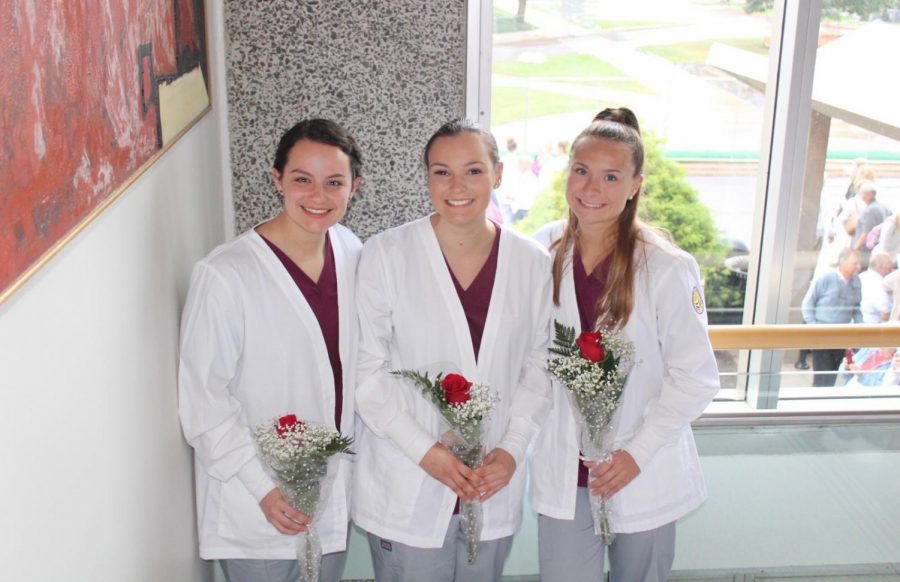Nursing Students Reflect on Undoubtedly Tricky Online Transition During COVID-19
February 22, 2021
BLOOMSBURG – This past Friday, Feb.19, in interviews conducted with three nursing majors, all seemed in mutual agreement that this pandemic, rather than discouraged, more inspired them.
Junior nursing majors Morgan Kreider, Katherine Ammann, and Rebecca Sigman provided answers to a series of questions concerning COVID-19’s impact on their lives as nursing students. As well as the effect this pandemic has made on their future hopes of joining the medical field.
Morgan and Katherine took part in the first interview together, holding a rather optimistic view of the effects this pandemic has had on them. Kreider and Ammann explained that having a schedule entirely online makes time management much easier and takes any “what if” factor in their regular schedules out of the equation. Ammann elaborated on this, explaining that she has to wake up early during regular classes, take travel time into account, and attend hours upon hours of on-campus lectures.
“With online classes, it’s as simple as waking up and logging into a zoom session,” stated Ammann.
The current online schedule is not without its flaws, however. Both Kreider and Ammann pointed out some less than favorable aspects of it. Both expressed that holding classes fully online eliminates any clinical experience one would gain during a standard schedule. Kreider explained that clinical serves as the “on-the-field” hospital-site portion of nursing school that allows students to get real-life, first-hand experience.
“Without clinical, we lose valuable empathy and personal relations with patients that could have been potentially gained.”
Ammann chimed in on this point, explaining that every student gets the same patients with the same needs in virtual simulations.
“In the real world, patients have specific requirements that we can’t learn while online.”
When asked if this pandemic altered their decision to join the medical field after school, both unwaveringly answered that it only increases their desire to become nurses. Kreider stated,
“Being a nurse allows you to be there for a patient when others can’t, while these COVID-19 patients are in isolation away from their loved ones, for example. Covid has been an eye-opener but has also given me more respect for this profession.”
In the second interview with a nursing student, Rebecca Sigman, her responses proved nearly completely compatible with those of Kreider and Ammann.
Sigman expressed that transitioning to online classes was undoubtedly tricky. Still, after getting in the flow of things, it has made for a much less jam-packed schedule.
“The biggest challenge in all of this is mental. Many felt we’d be unprepared due to the loss of our experience in clinical. However, the online curriculum has prepared us much more than I think any of us expected,” stated Sigman.
When asked if this pandemic has altered her decision to join the medical field, Sigman responded,
“Seeing all of the short staffing going on right now just makes me want to help even more. In this field, there will always be an unknown; this is just another unknown we have to overcome.”
All three nursing students noted that they are returning to clinical practice within the next few weeks. And are eager to return to real-world first-hand experience.


















